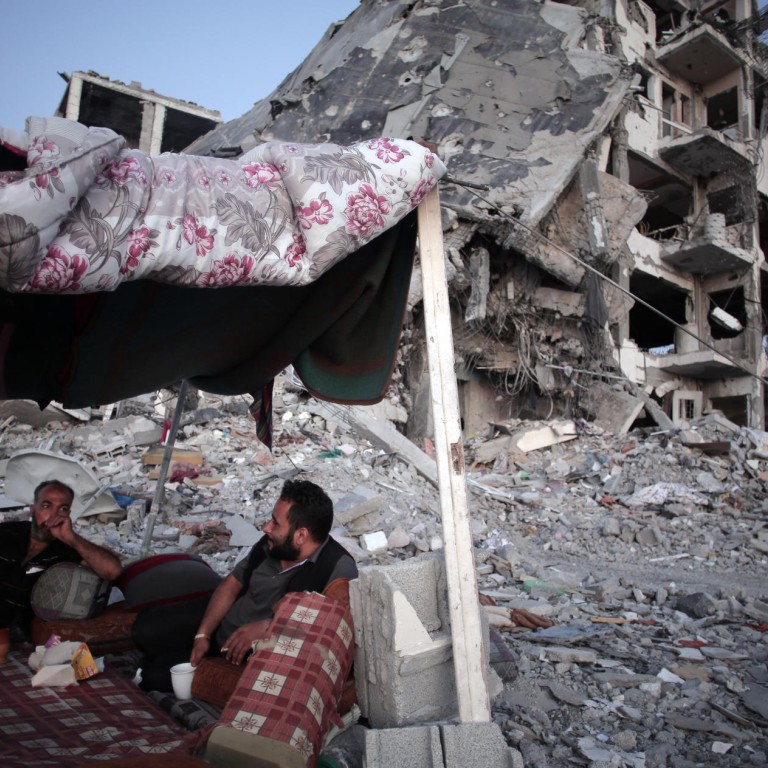
Calls begin for Israel to end its blockade to allow Gaza to rebuild
UN resident expert warns of more unrest unless people can start again
With thousands of homes reduced to rubble and its infrastructure in ruins, Gaza's reconstruction will cost billions and require the easing of Israel's blockade to allow in building materials.
Cement will be key among these materials, but its import will be controversial since it has been at the heart of an underground war between Israel and Hamas.
Israel's latest offensive has left swathes of the Gaza Strip in ruins. During brief lulls in the fighting families through the debris of their homes for possessions, waiting to start rebuilding their lives.
In front of his home, reduced to a grey mass of dust, rubble and twisted iron, Jamal Abed drags on a cigarette as he thumbs his prayer beads. "They destroyed everything here, there's nothing we can do," he said.
He knows he could spend months, even years, without somewhere to live because what is left will have to be torn down before it can be rebuilt.
But for reconstruction to start, there has to be a negotiated end to the fighting.
There also has to be cement, lots of it, and the enclave has a chronic shortage of this crucial construction material.
Israel first imposed a blockade on Gaza in summer 2006 after militants seized a soldier in a cross-border tunnel attack.
It was significantly tightened a year later after the Islamist movement Hamas seized control of the enclave, with Israel imposing severe restrictions on the entry of cement, gravel and steel.
Israel said the restrictions were aimed at stopping Islamist militants from building bunkers and other fortifications.
James Rawley, the UN's resident and humanitarian coordinator has warned that failure to lift the blockade could cause more conflict in Gaza in the future.
If the draconian measures were not removed, "not only will we see very little in the way of reconstruction, but I am afraid that the conditions are in place for us to have another round of violence like we're seeing now", he said.
Until recently, Gazans have been able to circumvent the restrictions of the blockade by importing cement through cross-border tunnels from Egypt.
But after the Egyptian military overthrew Hamas' Islamist ally, president Mohammed Mursi, in July last year, the new regime of Abdel-Fattah al-Sisi has cracked down on the tunnels, destroying more than 1,600 of them and dealing a crippling blow to the smuggling industry.
Since then, Gaza's reconstruction has depended on the materials Israel has allowed in, with supplies allowed through only for international construction projects.
"It would take 100 years to rebuild Gaza with the current rate of construction material being allowed in," said Sari Bashi, co-founder of Israeli non-governmental organisation Gisha, which campaigns for Palestinian freedom of movement and trade.
"In the years in which cement has been banned from entering Gaza, Israel did not manage to prevent tunnels from being dug," she said.
"It is a policy that is overwhelmingly harming civilians in Gaza with little to no security benefit for Israel."
The UN estimates more than 11,800 homes have been destroyed or rendered uninhabitable by the latest conflict.
